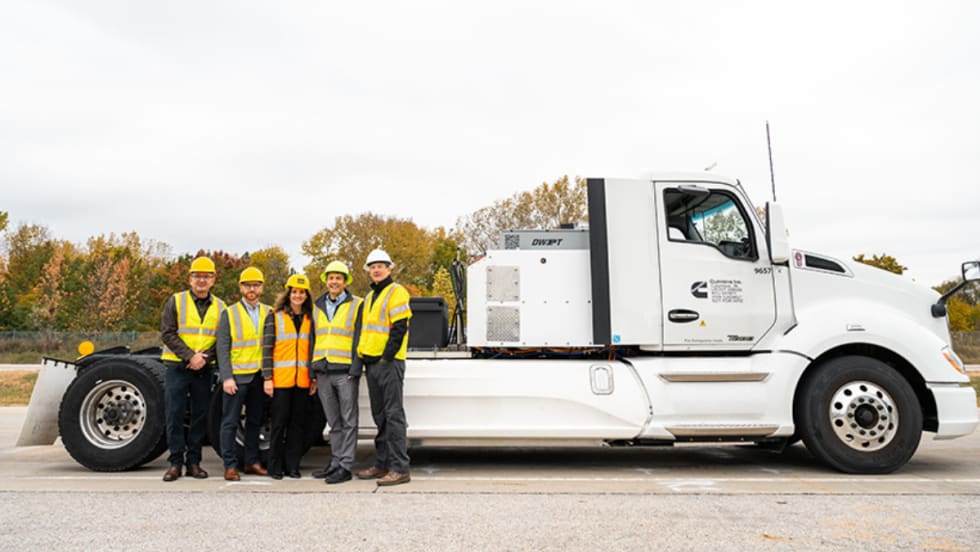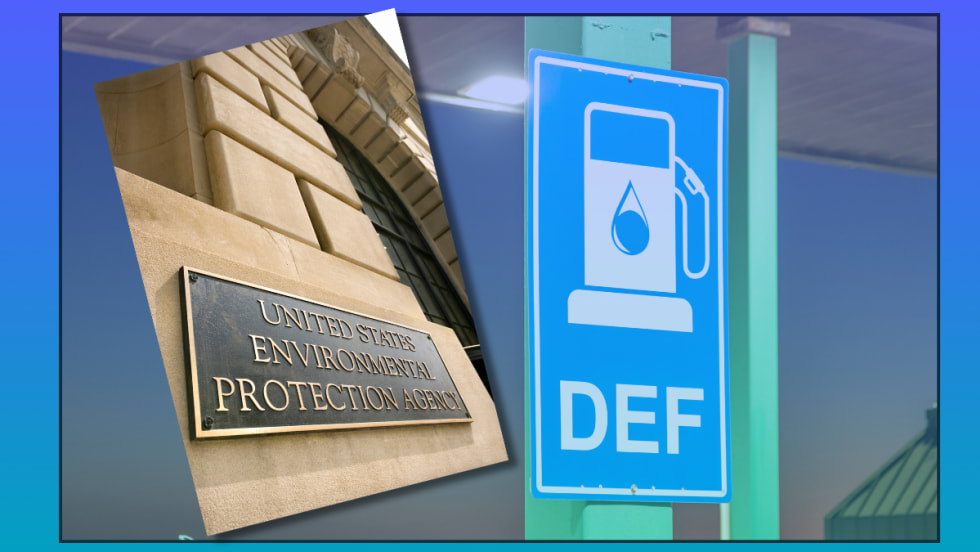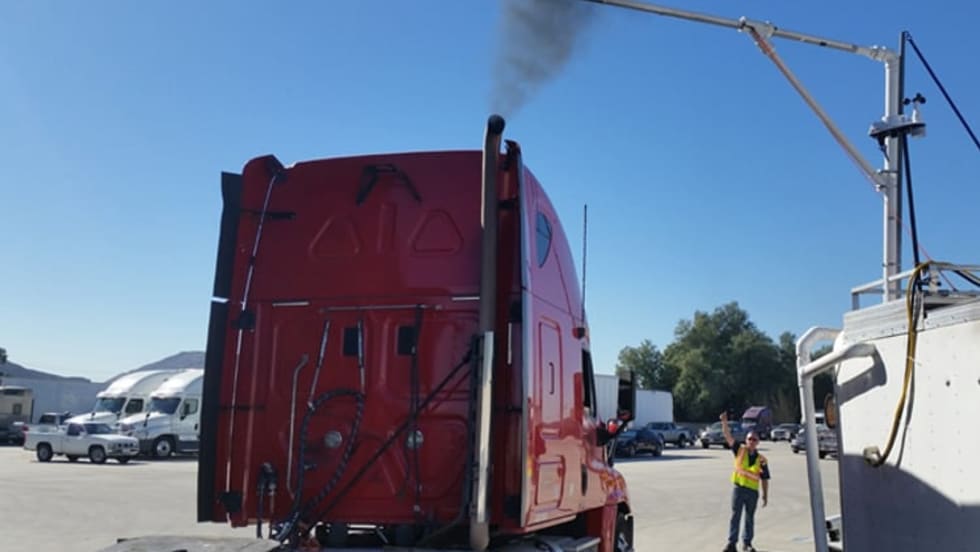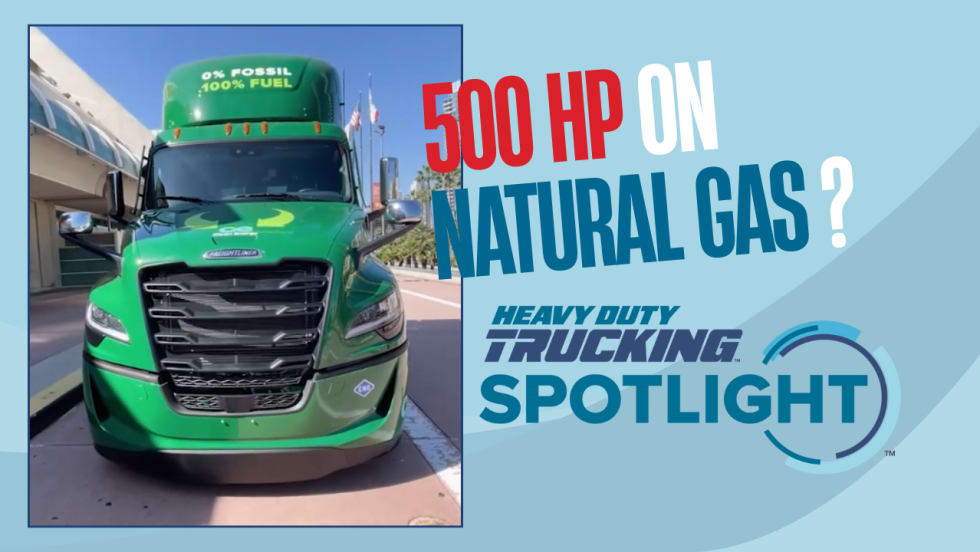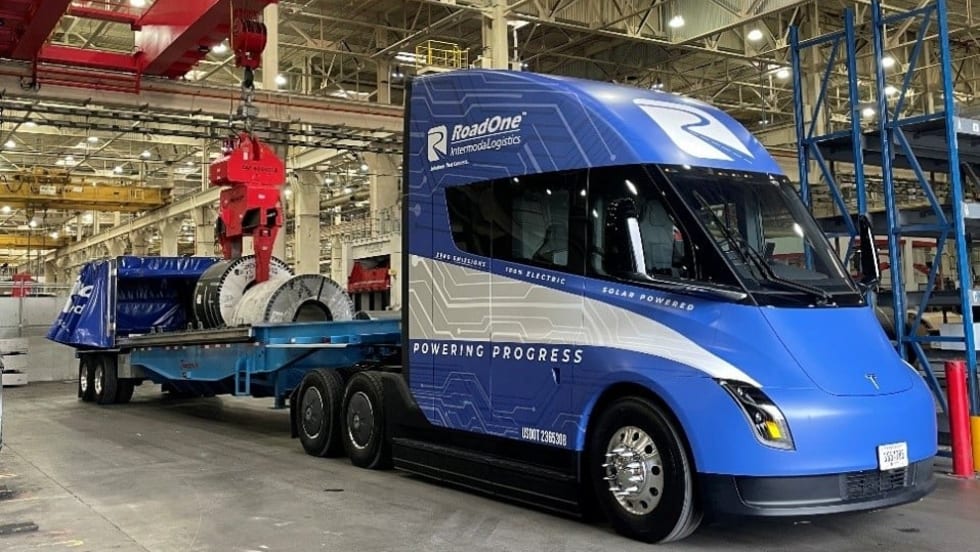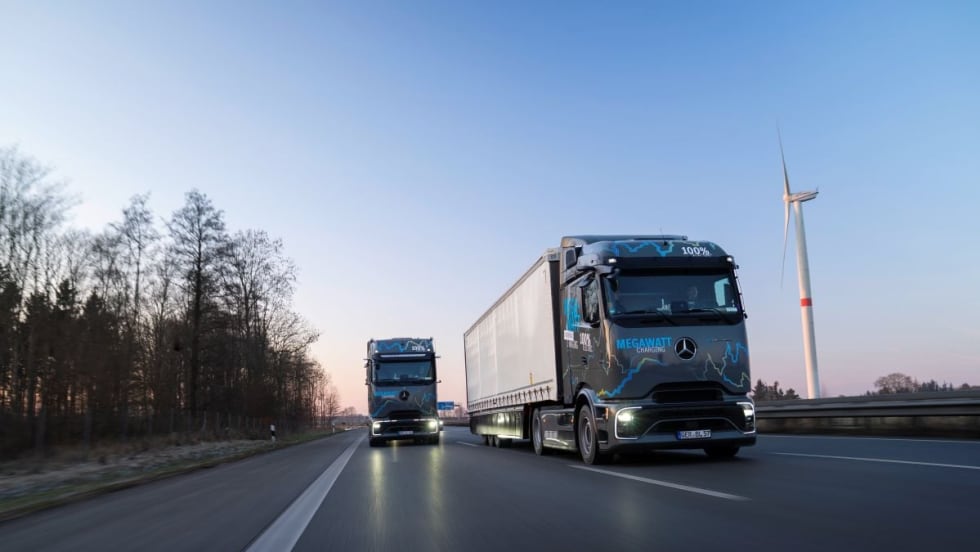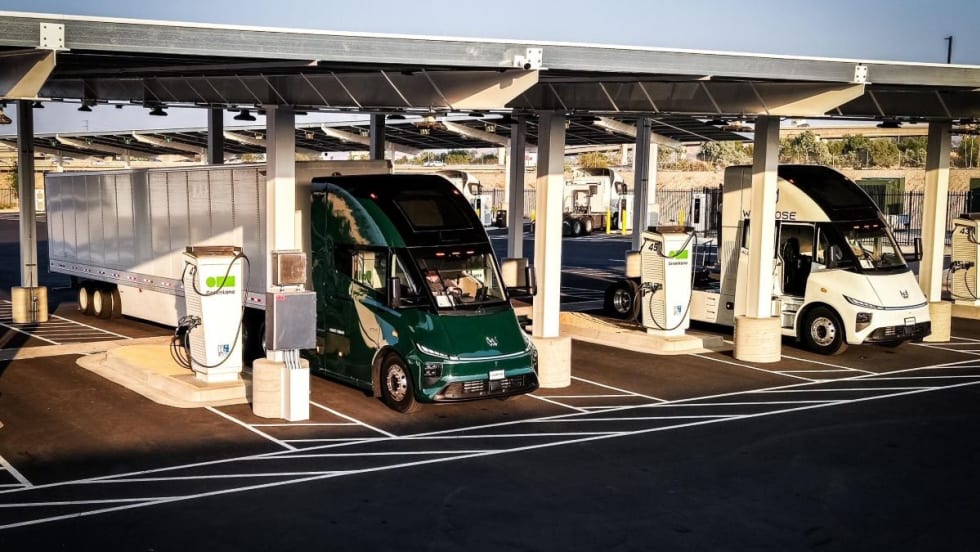Despite what could be charitably described as a rocky start, Nikola seems to be getting its sea-legs. Following the ousting of then-CEO, Trevor Milton, the company reorganized under its second CEO, Mark Russell, and last year managed to build and deliver more than a hundred battery-electric Class 8 tractors.
Michael Lohscheller is the company’s third CEO; he joined the company last spring before the European launch of the fuel cell truck at IAA in Hanover, Germany. He took the reins as CEO in November 2022, following Russell’s departure.
HDT recoded a wide-ranging video interview with Lohscheller in early January where he discussed plans for the American launch of a fuel cell powered truck, the company’s plans to produce and distribute hydrogen, and the infrastructure problems that continue to thwart the wide-scale adoption of battery-electric trucks.
This interview, condensed from a full video, has been lightly edited for length and clarity.
HDT: Is this your first tour of duty in the heavy truck space?
Michael Lohscheller: I came [to Nikola] in March of last year after more than 20 years in the passenger car business. It's a new world for me. So, it's my first assignment in the trucking industry, and obviously it's super exciting for me. At Nikola, we want to be a leader in zero-emission mobility, so a very exciting journey we are on.
HDT: Nikola introduced a fuel-cell-electric truck in Hannover last fall at IAA. Then in December, just a couple of weeks ago, you got an announcement from the California Air Resources Board that you'd been issued a certificate of compliance for the fuel-cell-electric truck. I guess that basically paves the way for the company to start production. When is that expected to happen over on this side of the pond?
Lohscheller: In the second half of 2023 we will launch the fuel cell truck here, which obviously is a very important truck for us. Here are just a few facts and figures about the truck: it comes with a range of up to 500 miles and the refuel time is 20 minutes or less. The power is 536 horsepower. It’s a really important truck, and it is important that we launch it in the second half of this year because everybody is waiting for fuel cell trucks. I think in terms of time to market we want to be the first in the Class 8 segment. We are very excited about this year and our fuel cell truck.
HDT: When you bring the fuel cell electric truck on board next year, could that divert engineering and manufacturing resources away from the battery-electric trucks? Will you be able to maintain their production levels?
Lohscheller: Well, I think we have a very good sequence here at Nikola. Last year, 2022, it was all about the battery-electric truck. And that was our first truck. I mean, at the time we had just built the Coolidge facility. And now we are able to shift engineering resources to the fuel cell truck. We have learned a lot of things from our first launch. We improve every day, so now the majority of our resources are absolutely focused on the fuel cell truck.
HDT: As far as the BEV is concerned, last year you issued guidance saying you'd build between 300 and 500, I think you came up a little short of that number. But how many trucks did you build last year?
Lohscheller: We will announce detailed figures in our earnings release on February 23 I think it is. So, at the end of Q3 we had delivered the first 111 trucks to our dealers, and our dealers are now delivering those trucks to end customers. But what I can say is that we made good improvements to the daily production output in Q4, so this is good. And the great news is that we want to change many things and really offer zero-emission mobility to our customers. And we have trucks available to customers, which I think is very exciting in a world where at the moment there are shortages everywhere. We have trucks available for test driving and also for sale. And we're really proud that we have the battery-electric truck in the market, and available to customers.
HDT: Overseas you use IVECO as a dealer network service, parts, warranty, what have you. IVECO doesn't have a presence here in North America, so who is your North American dealer network?
Lohscheller: We have a very strong dealer network here in the US. We have set it up with various different dealerships with a lot of experience. Overall we have 127 dealer sites, and I think this is really important in terms of service. Because we were talking at the beginning how different the truck industry is compared to the passenger car business. Of course, I mean in case something happens with a truck the immediate service is so important. And therefore, I think it's important that we have set up this strong network with a lot of reputable dealerships, with a lot of experience and good service capabilities. So, in case something should happen to our truck, we can fix this immediately because as you know it's all about the uptime.
HDT: Was part of the difficulty you had in the supply chain last year battery-related? Were you having trouble getting batteries?
Lohscheller: We had at the beginning a few issues on chips as an example, but we managed very successfully through that with our supply chain team. On the battery side, we made an important decision to acquire Romeo Power, because the battery is an important element in the battery-electric truck. And I feel much better now while we have it in our hands and can manage it ourselves. Because there are many improvements you can make, first of all on the quality, and in the efficiency, but also on the overall integration. I want to improve the battery further on. So really important strategic move from our side, and I'm very happy that now we have the battery as part of Nikola in our own company.
HDT: At the time, Nikola was Romeo Power's biggest customer, I understand, but they also supply Paccar. Is that supply agreement going to come to an end now that you own Romeo and Paccar one of your competitors?
Lohscheller: Well, we’ll work through all the different relationships. Obviously, we are the biggest customer as you say, that's why it makes so much sense. And now we work through all the other relationships Romeo had in the past.
HDT: Getting these trucks to market, you've got some inventory customers are welcomed to your door to test drive them. But one of the biggest barriers that fleets face right now to the uptake of electric trucks is the charging infrastructure. There's a two-year or more backlog I think in most cases if you want the utility companies to come in and start doing some work on your property, and there’s lots of engineering involved there. There are no commercial charging networks in place yet, anywhere really in the country. Has Nikola got plans to help customers out with that, try and get them up and running faster?
Lohscheller: Yes, absolutely. But first of all, you're right; infrastructure is a really important topic, and we always keep saying we need to bring the chicken and the egg together here -- the truck and EV infrastructure. Some customers have really good solutions, in some cases our dealers also have a lot of experience and can help. But we also have tools like mobile chargers. That’s quite important and can help to bridge a certain period of time. So, we at Nikola offer mobile chargers to our customers, so that you can use this until let's say the permanent infrastructure is in place. And customers are really interested in this, and some actually want to keep this for a longer period of time. Overall, I think the infrastructure topic is of highest importance.
HDT: What sort of market share are you hoping to achieve, say within the next five years or so?
Lohscheller: I want to make sure that Nikola is a leader in zero-emission mobility, and obviously we are not the only ones. Everybody is coming. We need to see how quickly the adoption rate increases. I sense, for example, it might happen faster in Europe than in some U.S. states here. But overall, we absolutely want to take a leading position there. I don't want to quantify a market share target because it’s still too early to say, but Nikola will have a leading position in zero-emission mobility in Class 8.
HDT: Let's switch gears then, metaphorically, and talk a little bit about the hydrogen side of your business. The company recently purchased a large tract of land near Buckeye, Arizona, where I understand you plan to build an electrolyzer plant. You've also inked a deal with another hydrogen producer called Plug Power. You're lining up all your ducks to have a good, adequate supply of hydrogen around. When are we going to see enough trucks built to start consuming all that hydrogen?
Lohscheller: Well, we have a great strategy. Our trucks on the fuel cell side will come out in the second half of 2023, so that's in a couple of months. Of course, we’ll ramp that up, so we will have a couple of hundred at first and then hopefully into the thousands. At the same time, it's important that we offer the hydrogen and we want to secure a hydrogen source with our partners. We also want to produce with partners here in Buckeye, which is close to our headquarters in Phoenix, that can provide hydrogen to the California market first. We want to make sure that wherever there is a strong demand for the fuel cell truck that hydrogen is available. The overall total cost of ownership depends a lot on that, and that's why we always say at Nikola we stand on two legs: we have the truck business and the energy business. I think this is absolutely important because that's what customers request from us.
HDT: Those two producers I mentioned a few minutes ago, will they be producing what you would call green hydrogen, or somewhere between green and gray?
Lohscheller: I think we need to be pragmatic. First of all, to our earlier discussion, diesel trucks have to disappear, right? I obviously want to have green hydrogen, but if it is gray at the beginning, I think we have to be pragmatic and say, "Okay, that's the first step." But obviously at the end of the day we all want to go with green hydrogen for sure. I don't want to announce things and always talk about things, I want to do things. I feel good that we launched the fuel cell truck this year, and that we are also able to offer hydrogen. And yeah, if it is green, great. If it is gray at the beginning, I think that's also fine.
HDT: How close do you think we are to scalable volumes of green hydrogen? It seems like a lot to achieve.
Lohscheller: I think a lot of things happened in 2022 which support hydrogen; the Inflation Reduction Act here in the United States is obviously very helpful, right? There is a lot of support for the production of hydrogen, and also for the dispensing. I think once people like Nikola come out with trucks and can ramp up the volume, I think we can see meaningful volumes in the next couple of years. As well, everybody investing in hydrogen is looking for an offtake, and of course our truck is perfect for this. I think we can see a breakthrough of hydrogen in the truck business very, very soon.
HDT: Are there any plans for a hydrogen internal combustion engine within the Nikola framework?
Lohscheller: We discussed this, obviously. It's an interesting topic. But let us finalize it first, and then we make some announcements. At the moment, we are laser-focused on the battery-electric truck which we launched successfully last year. This year [we’ll focus] on the fuel cell truck. I'm sure we will have many more ideas, and I would say, more to come.





